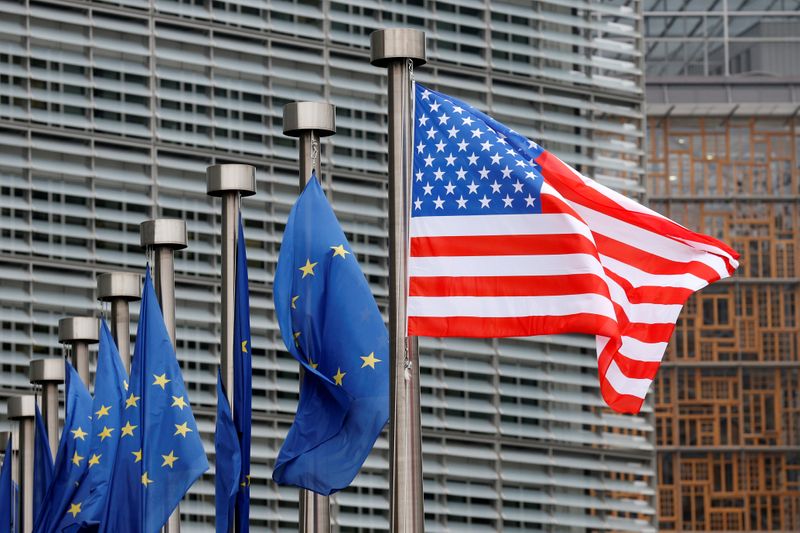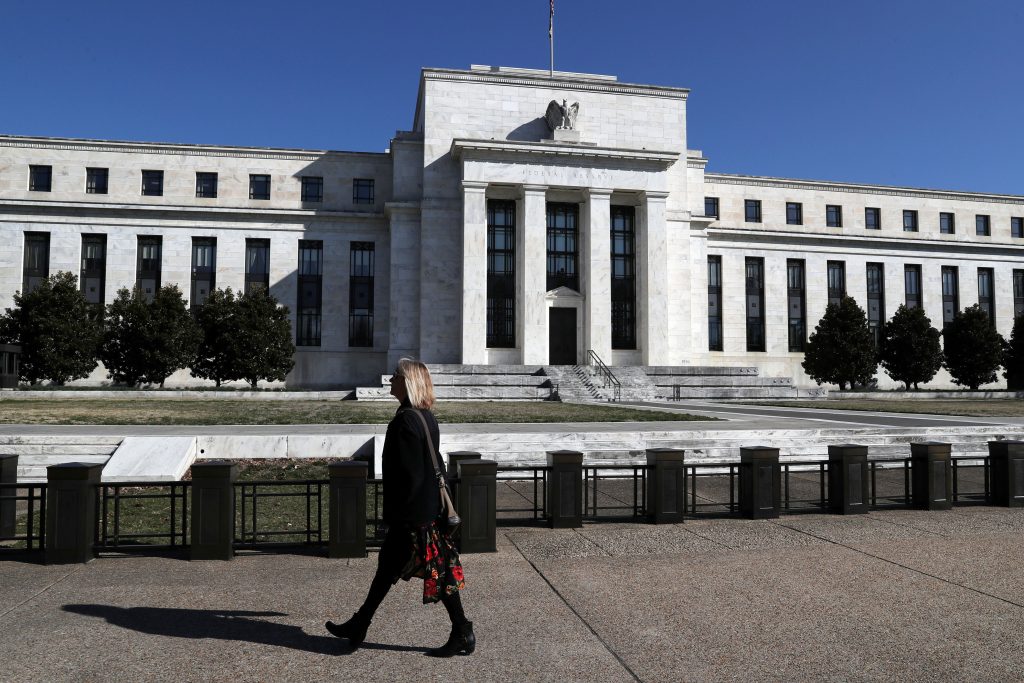
FILE PHOTO: U.S. and European Union flags are pictured during the visit of Vice President Mike Pence to the European Commission headquarters in Brussels, Belgium February 20, 2017. REUTERS/Francois Lenoir
June 24, 2020
By Andrea Shalal, Tim Hepher and Philip Blenkinsop
WASHINGTON/PARIS/BRUSSELS (Reuters) – The United States moved to maintain pressure on the European Union in a 16-year dispute over aircraft subsidies by flagging possible changes in tariffs on EU goods, as the date for a decision on reciprocal EU duties slipped to the autumn.
The latest development in the dispute over subsidies to Europe’s Airbus <AIR.PA> and U.S. rival Boeing Co <BA.N> comes as the aerospace industry has been severely weakened by the coronavirus crisis and amid steps by some governments to support aviation via airlines or suppliers, as well as furlough schemes.
The U.S. Trade Representative’s office added items valued at $3.1 billion to its list of European goods eligible to be hit with duties – including black olives, beer and gin – and said it could switch gears to target other items on a previously published list or raise existing duty levels further.
Britain – one of four Airbus core nations and still part of the case despite leaving the European Union – urged Washington on Wednesday not to impose more tariffs, warning that tit-for-tat measures hurt businesses on both sides of the Atlantic.
A spokesman for the European Commission said Washington’s approach could exacerbate problems caused by the coronavirus, and might even “go beyond what is authorized under the WTO.” The EU’s priority remained finding a negotiated solution, he said.
The U.S. move is part of a “carousel” approach aimed at maintaining pressure on the EU to reach a settlement and end a dispute that dates back to 2004, dragging through three U.S. presidents and five presidential terms of office.
Both sides have won partial victories at the World Trade Organization, and have signaled interest in settling the matter, but are waiting to see final rulings, according to sources familiar with the process.
Last year, the WTO allowed the United States to levy tariffs on $7.5 billion worth of EU goods, including aircraft, wines and cheese, because of Airbus subsidies that it had deemed illegal.
Now it is considering the level of tariffs that the EU could impose in a parallel case involving illegal support for Boeing.
That decision, initially expected in May or June, has been pushed back to at least September due to the coronavirus health crisis, two people familiar with the case said, while a third said it could slip until October.
The WTO declined to comment.
The timing raises the possibility that the EU would be allowed to impose its own tariffs on U.S. goods weeks before the Nov. 3 U.S. presidential election, although foreign states tend to avoid taking high-profile actions during such campaigns.
Analysts say both sides share an interest in settling the issue to provide a rule book for future competition with China, which is developing its own passenger jets.
For now, each side claims to have obeyed the WTO, while accusing the other of ignoring thousands of pages of rulings.
(Reporting by Kanishka Singh in Bengaluru, Tim Hepher in Paris, Phil Blenkinsop in Brussels, and Susan Heavey and Andrea Shalal in Washington; Editing by Louise Heavens, Chizu Nomiyama and Peter Cooney)

